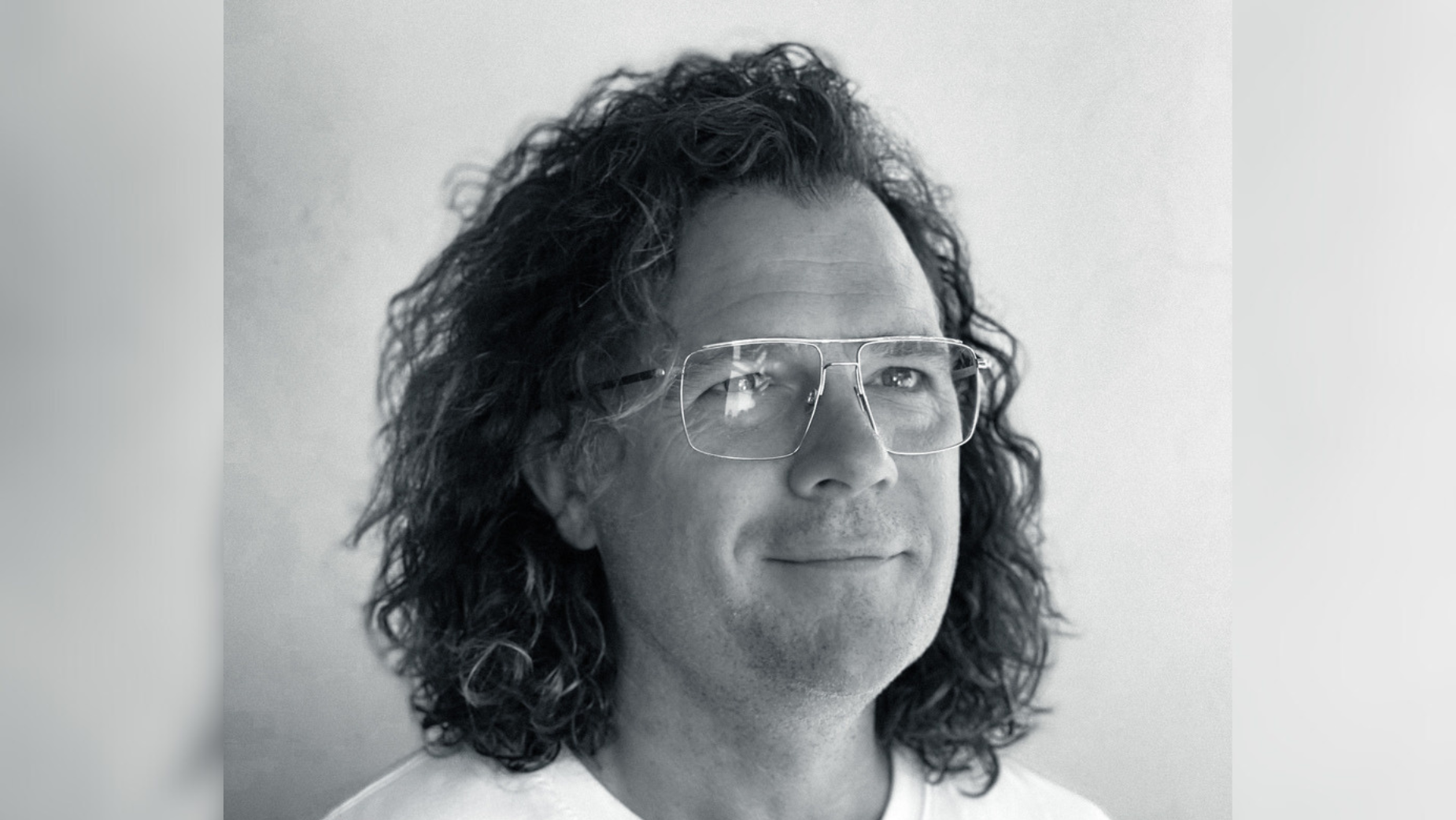
The Work That Made Me: Niall Downing

Niall Downing is a director and co-founder of Bite Collective. He’s directed a wide range of commercial campaigns including Sainsbury’s, Santander, Aldi, Harrods, PokerStars, Hovis and Birds Eye. His TV projects include TFI Friday, Grand Designs, The Naked Chef, Ricky Gervais Meets… and Crazy Delicious. He’s been lucky enough to pick up a few awards along the way.
I started out working in TV and commercials simultaneously. I was running for Chris Evans on Channel 4’s 'Don’t Forget Your Toothbrush' and working part-time for Madeleine Sanderson at Fletcher Sanderson Films (how I had the luck to work with them both is another story). I knew I wanted to direct, I just had to choose my path.
TV offered me the most creative route - I became a researcher on the next series of 'Don’t Forget Your Toothbrush' and then researcher/associate producer on TFI Friday where I started editing VT packages and shooting some of the sketches with guests. I loved every minute of it. Too many good moments to mention but a couple of less great moments included being told by a powerful PR agent I’d ‘never work in the industry again’… He’d told me his ‘star’ was not to do anything on the show except an interview.
As part of my research I talk to the guests and confirm our research and questions.
At the end of this phone call the guest, a little down, asked if that was it? Didn’t Chris Evans want to do any extra stuff? So, I told him all our plans and repeated that his agent had said ‘no’. He was delighted and insisted we film the sketch with him.
At home that night my phone rang and the irate agent told me my career was over. I believed it too but my producers rallied round me and all was good.
I also got called a c**t by Sean Ryder. It had been my job to get him out of the bar and onto the stage for his performance. I was told not to take it personally, definitely a good lesson when dealing with tricky egos.
Once Sean did get onstage, his performance became legendary and resulted in that episode being the last 'TFI Friday' ever broadcast live.
Live TV had given me so much experience of fast creative turn-around, working under pressure and adapting to unforeseeable situations but I was still fixated on becoming a single camera director. My break came when I was asked to shoot a pilot for what became 'Grand Designs'.
Channel 4 saw the taster and the series was green-lit so fast we didn’t even know if we were making a 30 or 60 minute show. For me a big part of directing is using your intuition and at this stage it was pretty much all I had.
I’d never directed anything long-form, plus the process of covering a house-build meant there were countless possible outcomes. I had to visualise the ending and use that to inform how I told the story throughout the year-long construction. It was a profound learning experience. I'm very proud of that show but I’ve never had the urge to film anything to do with building since…
You never know what’s around the corner. I got a call asking if I’d like to work with Jamie Oliver on the second series of 'The Naked Chef'.
I had no plan to make a cooking show but it turned out to have a major impact on me and the work I make. My interest in food beforehand had been solely about eating but this taught me the passion involved in cooking, the beauty of filming food and the fact that you could create a great story too.
The production value was amazing and we worked in a way that was more like film than TV. We had one camera and shot each recipe three to four times to get the best performance and angles. As a director, I finally started to get the kind of complete control over the visuals within a scene that I’d always wanted.
Ever since I was a runner, directing commercials was a major aspiration to me. The craft and inventiveness blew my mind. I edited a showreel, got some good recommendations of production companies and… got my foot in the door. Not surprising that my first paid film was with Jamie.
We were in Naples filming the family who make the pasta for Sainsbury’s. I wanted a lightweight crew so we could improvise and capture a good sense of the energy of the streets and markets of the city. We arrived and were having a briefing with the local production team when they told us the weather window was closing fast.
We were able to run up the hill, load the 16mm camera and shoot the opening establishing shot before the rain began, and before the shoot had officially started. It proved we could move fast and it was a great way to help deal with my first commercial pre-shoot jitters. That job was the beginning of a long and hugely rewarding collaboration with producer Nick Crabb.
One film that sticks out in my mind was a commercial for the Toyota Land Cruiser. The car and a horse racing through the Portuguese countryside, culminating in a final rocky climb to the summit. At this point the car outpaces the horse and arrives at the top, the victor.
It was an exciting, technical shoot - all pre-planned with the storyboard and animatic agreed and locked. We got the aerial shot of the car arriving at the summit and we were ready to celebrate the end of the shoot. But the client then asked us to shoot a new ending with the horse and the car side by side at the top of the mountain.
I always try to accommodate a request but the ground was very rocky and there was a real chance the horse could break its leg. Given this has been explained before, I wasn’t sorry to say no.
But the client insisted and sadly, money changed hands for a vet to deliver a tranquilliser to the horse. It was led to the precarious spot and the helicopter went up to get the shot.
Thankfully, in the end the drugged horse stood safely on the rocks but in its woozy state it also had a massive erection.
Talking of work that made me, as a self-taught director, I have learned most from the people around me. I have to mention working on Sainsbury’s ‘Spiceworld’.
Coming from a factual TV background this really was a creative departure for me, and I’ll always be grateful for Tony Strong and Mike Durban at AMV for championing us. It was ambitious, and there was no room for improvisation, so all the work had to be in the preparation.
I was really nervous as it was the biggest film I’d worked on up to that time but it ended up being one of the most liberating. Pre-shoot prep was done, manifesting in a meticulously accurate animatic, and on the day all I needed to be concerned with was the performance of the cast. It was wonderful.
The DoP on ‘Spiceworld’ was Ben Davis, and I gained a lot of confidence through that collaboration. From my early inexperience I began to take bolder choices and believe in them. Ben was the obvious choice for the Pokerstars ‘Brasil’ campaign, which summed up the kind of ‘go for it’ mentality that he had.
It was exciting, expressive and pretty romantic too - I met my wife, Serena, on that film. I really think directing isn’t just a job but actually something indivisible from me as a person. What I am is reflected in my work and vice versa, so it’s always evolving.
One of the biggest, most painful lessons is dealing with losing out on a job.
Unsurprisingly, I usually take it badly but now I have a clearer perspective and can see that rather than simply failing, it also probably wasn’t right for me, nor I for it. Bringing this up to date, we co-founded BITE Collective in lockdown because of a passionate belief in how much quality and diverse work can be made around food and its connected stories.
Building a team of people who can realise that better than anyone else has been our goal. At the moment I’m exploring short-film ideas that combine food and human drama in a fun, original way and also working on some long-form TV ideas based on food, family and the traditions handed down through the generations.
It’s been an interesting process writing this and looking back a bit, which is something I’m not prone to do. There are plenty of moments throughout which, I’d say have made me, some fixed in time and some that carry on today.
From the beginnings of 'The Naked Chef' up to our current Channel 4 series 'Jamie: What To Eat This Week' it’s amazing how far we’ve moved on in the way we approach filming.















